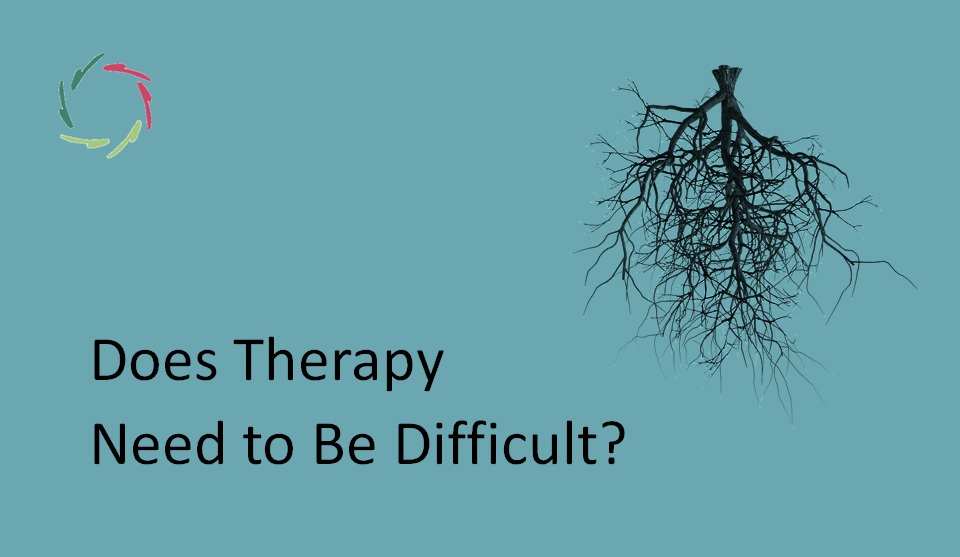Does Therapy Need to Be Difficult?

It needs to be profound, one way or another.
Please read first: [see: ” Is Change Difficult?“] So, does therapy need to be difficult?
Should it be difficult?
Note that this is another question than the one about its being or not being so.
Even if it can be easy, should it be difficult ― out of morality, perhaps?
A religious (or, with a few changes, juridical) take on being absolved from sin may deem that this should not be easy, or at least you shouldn’t expect it to be easy. Hm, does this mainly make the religious organization more needed, therefore, more powerful? In any case, it’s not enough to ask and get and that’s it.
Then there is grace. One gets it for free ― to some astonishingly, amazingly, incomprehensibly. To some, even does-not-feel-rightly. [see: “Grace“]
In therapy, there may be an underlying feeling that it must be difficult.
As it is to me, in a way. A proper difficulty may lie in the respect that this demands for depth and all things related. Thus, being-difficult is never far away.
This idea makes one careful. It diminishes a possible sense of hubris. It opens the inner landscape in which an inner wind may blow.
The wind blows freely. Opening the landscape is challenging.
Easy therapeutic change may be superficial.
“What easily comes may quickly go again.”
A real (deep) change in a complex being is a complex change. This complexity brings difficulty, one way or another.
Then there is grace, also in therapy.
This doesn’t lie in less difficulty or less complexity, but in a better handling of it.
Dealing with the difficulty is an asset by itself. It is worthwhile. It brings something that otherwise wouldn’t exist. It’s addressing the difficulty that brings grace. In religious grace stories, this is generally overlooked. But see what the receiver-of-grace did in life before.
The complexity is mainly non-conscious. This can make it more challenging to be appreciated. It also makes it more important to appreciate the difficulty itself.
So, better said, in therapy, the difficulty should not be avoided but handled well.
There is something to say for “It should be difficult.” By default, it should be, and if it is, one may be grateful for it, not evade it.
From this difficulty, one may strive to find ways to handle it so that the straightforward difficulty is less necessary.
That’s grace to me.
It’s always deserved.
As a coach/therapist, it is better to avoid an unfit impression that therapeutic change is easy. The client comes to you precisely because of some difficulty. Moreover, he may have already consulted several other therapists.
The best is to acknowledge therapeutic difficulty from the start, then convey your hope and faith that change will happen, in the best case, not through a struggle with one’s inner demons.
Dear therapist/coach, human depth should be your friend.
That makes you a Compassionate healer.


